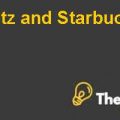Dabur Case Study Solution
- Management capabilities
Dabur is among the top 10 consumer packaged goods companies in India by revenue and has four business units: consumer care, consumer healthcare, food business and international business.
Its core capabilities include firstly its products are priced and targeted to mass market. Dabur is producing and offering more than 450 products for domestic consumers and has a wide network of about 1.5 million of retail outlets and 5000 distributors. Their products are targeted to low, medium and high income earning people and the product portfolio has high-growth.
It stands unique among its rivals because its products are medicated and are mostly made of herbs (natural). Secondly it is one of the heritage company which is transformed from being a family-run business to now fully manage by professionals. Other capabilities include the ability to anticipate the consumer needs with current trends, products strongly backed with research and development and has built up skills in product engineering and localization. It has a dedicated sales force to key grocers, mass grocers, chemists, modern retail outlets and wholesaler. All of four business units have independent supply chain.
- Specific resources and capabilities to create value:
Firm can create value in its business by investing more in its research work, employees and product. To be dominant in the industry, Dabur needs dedication and enthusiasm by all levels of business. The company must focus their time and energy on home markets form where it is gaining high share of income and maintaining its uniqueness in all aspects. Because of increased customer value, a firm should focus on improving those capabilities which consider customer as its vital component to create value.
- Industry based competition:
Competition within an industry is depended upon five basic forces which are splendidly defined by Michael porter as 1. Industry rivalry 2. Threat of substitutes 3. Bargaining power of buyers 4. Bargaining power of suppliers 5. Barriers to entry. Together all these determine the degree of competition and profit potential in the industry. Marico, L’Oreal, Nirma ltd, and Proctor & Gamble are major competitors of Dabur in the industry.
- Formal and Informal institutions influencing the ability to succeed:
Institutions are the guidelines that make up the structure of social and economic relations, which direct and compels the conduct of individuals. Helmke and Levitsky
consider that both compatible and conflicting objectives can be recognized amid the mentioned institutions. The quality of formal institutions give the typology of informal institutions. If the compatibility between the institutions is achieved, then informal institutions will foster upstanding behavior in this way the real control over relations leading the use and provision of resources is achieved. (Leković)
- Initial Decisions
- Internationalization
Yes! Dabur can go for international expansion on grounds of its historic foundation and core competencies. It has already five manufacturing units overseas and products are exported to more than 500 countries. This means that the products are globally recognized around the world and the company has taken strategic steps toward the goal of expansion internationally. With already identified and targeted countries, internationalization can be planned and processed accordingly while gearing up the quality and standard of products to be offered in international markets.
While arguments against this expansion include that it will be costly and risky and much demanding from the management and employees to achieve the target position in the global market which will obviously be not at the door step and the growth will be attained in stages.
- Location specific advantages:
Location specific advantages can be availed in the countries where the product is already introduced or in the other case where it has natural and human resources to manufacture it. These include all the factors such as geographical, economic, social environmental aspects which are desired for Dabur. The targeted customer base is important in this regard so that the product is initially accepted by public. Economic factors such as labor available, material required and capital needed are vital to consider at any location.
Dabur Harvard Case Solution & Analysis
- Country selection:
There are two broad portfolios, one is of Asian markets (Pakistan, Bangladesh, Nepal, Sri Lanka and Malaysia) and the second is of member of Gulf cooperation council, Africa and other Middle East countries. The first one is likely to be chosen because of the similarities in consumption behavior of public. As the Asians are aware of natural and herbal products and the products have been already introduced there. Among African countries Nigeria has larger customer base for products like toothpastes, soap and mosquito repellents but Nigeria does not have larger Indian diaspora unlike the Asian and Arab countries where Dabur is already present.........................
This is just a sample partial work. Please place the order on the website to get your own originally done case solution.












